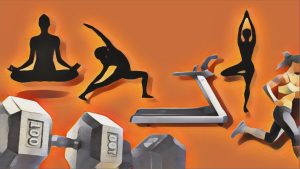The sound of success
April 19, 2023
This exam season, it’s time to stop frantically scribbling answers on paper. It’s time to have a conversation.
An oral exam is a process that involves students verbally responding to the instructor’s questions. While written and multiple choice tests develop essential skills like synthesizing information and time management, oral exams can nurture students’ communication, presentation and critical thinking skills. Such attributes are essential in almost all career fields.
UT should implement oral exams for undergraduates to help them cultivate new skill sets and reach their full potential.
Brianna Rankin, a government sophomore, outlined how oral exams would benefit the student body.
“I could see how the extra pressure (of talking to a professor) will allow someone to know the concepts and not just regurgitate information. … I can see why that would help you gain a deeper understanding of concepts,” Rankin said. “In oral exams, you have to learn how to convince the instructor that you know what you’re talking about, which is an essential (trait) for any sort of professional environment.”
However, Rankin said oral exams should only be implemented for liberal arts classes, while STEM classes should continue following traditional exam formats.
“I don’t think (oral exams) would be as effective in STEM classes as (they would be) for liberal arts because STEM classes are more technical and require a lot of formulas,” Rankin said. “I don’t think (oral exams) would be the best way to conceptualize fully what’s being taught in class.”
It’s natural to see the appeal of oral exams for liberal arts subjects like philosophy and history — where testing concepts verbally is far easier. However, oral exams can also benefit STEM majors. By virtue of its configuration, oral exams can act as practice for technical job interviews.
Sheri Burson, program coordinator for professional development education at Liberal Arts Career Services, elaborated on the career benefits of oral exams.
“I think that (oral exams) can help you critically think on the spot, which will help in interview situations,” Burson said. “We’re seeing that students want to go into consulting to have to go through case interviews, where they are often presented with a problem and have 10 minutes to go over it and there probably aren’t many times throughout your undergraduate (career) where you’ve been given the opportunity to think critically (in that manner).”
Shavonne Coleman, assistant director for transformative learning, said oral exams can nurture a core skill in communication — giving and receiving feedback. This attribute can prepare students for graduate-level coursework, which has oral exams, and the professional world. Coleman also said oral exams enable clearer communication between professor and student.
“(You) can read a question on an exam and interpret it differently than what the professor wanted (you to interpret it as). If that happens in an oral exam, there’s an immediate opportunity for the professor to clarify what they meant,” Coleman said. “It’s a benefit (for professors) to sit down and have a conversation with students, and get to know why the (class material) is important to them.”
Despite their advantages, oral exams do have flaws. The possibility of unintentional bias and general student nervousness are two common objections. However, UT can successfully implement oral exams if professors remain mindful of these challenges.
The University should allow students to cultivate their unique skills and abilities through oral exams. Such broadening of assessment options could create a more enriching learning experience and better enable students to achieve post-college success.
Muyeed is an economics sophomore from Southlake, Texas.
















